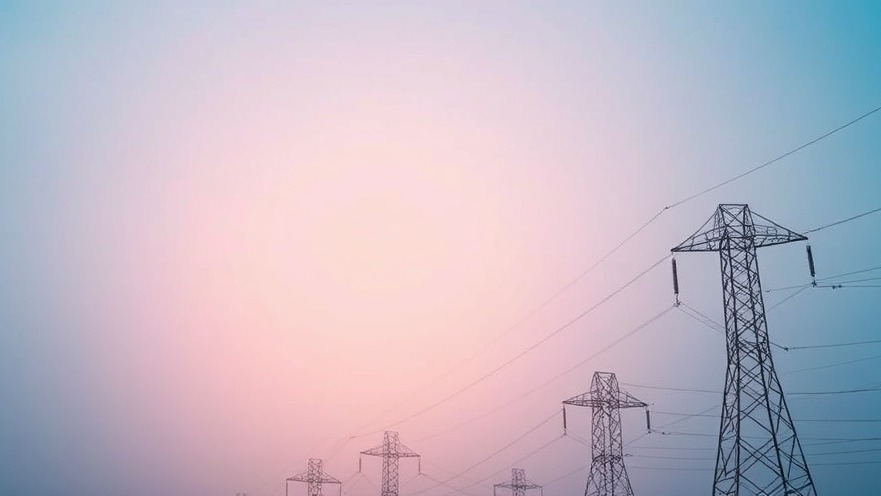
Texas Legislature Takes Bold Steps to Strengthen Power Grid
Amid a rapidly growing demand for energy in Texas, lawmakers have passed significant bills aimed at fortifying the state's power supply. The legislative session saw initiatives to enhance the reliability of the Electric Reliability Council of Texas (ERCOT) while sidestepping proposals that would limit renewable energy sources.
The Rising Demand for Energy
As Texas continues to expand, driven by the booming data center industry and new petrochemical facilities, the need for electricity is projected to almost double within the next six years. This rising demand places immense pressure on ERCOT, the state’s main grid operator, to ensure sufficient energy is delivered during peak usage times.
New Regulations for Energy Use
One key development emerged from Senate Bill 6, sponsored by Senator Phil King. This legislation empowers ERCOT to unplug large energy consumers, such as industrial facilities, during emergencies stemming from extreme weather or significant demand surges. Before executing a power cut, ERCOT must deploy all emergency measures and provide a 24-hour warning, ensuring that all stakeholders are informed and prepared.
Pat Wood, CEO of Hunt Energy Network, emphasized this bill's balance between securing reliable power and recognizing the interconnectedness of all energy users. Under this law, large energy users wanting to connect to the grid must disclose their intents and pay a connection fee, which aids ERCOT in accurately forecasting future electricity needs.
Funding New Infrastructure
The Texas Legislature also designated a substantial $5 billion to the Texas Energy Fund, a loan initiative designed to promote the construction of power generation facilities, particularly focusing on natural gas and nuclear energy projects. This allocation follows a similar amount approved in 2023, underlining a strong commitment to enhancing energy infrastructure. It's worth noting, however, that renewable energy projects are ineligible for this funding, which has raised concerns among environmental advocates.
A Balancing Act Between Energy Sources
Despite progress in several areas, the legislature's failure to impose restrictions on renewable energy sources was a notable aspect of the session. As Doug Lewin, a Texas energy expert, pointed out, the outcome could have been worse if the most damaging legislation proposed against renewables had passed. Texas’s energy landscape continues to trend towards diversification; however, the current legislative session showcased ongoing tensions between traditional energy sources and renewables.
The Road Ahead: What Does This Mean for Texas Residents?
For Texas residents, this legislation signifies increased reliability in energy supply and preparedness for potential shortages. The confirmation that large consumers can be temporarily disconnected during emergencies should reassure residents that their power will be prioritized during critical periods. However, the sidelining of renewable energy regulations reflects a commitment to traditional energy sources in the immediate future, likely leading to debates and discussions in the upcoming sessions regarding the ecological impacts and the importance of diversifying Texas's energy portfolio.
Conclusion: Embracing Future Energy Needs
As Texas grapples with energy demands driven by significant economic growth, the latest legislative actions represent a balancing act of benefits and challenges. While there are substantial measures to secure the power grid, the absence of restrictions on renewable energy leaves room for future conflicts and discussions about sustainable growth strategies. Only time will tell how these changes will impact Texans.
 Add Element
Add Element  Add Row
Add Row 



Write A Comment